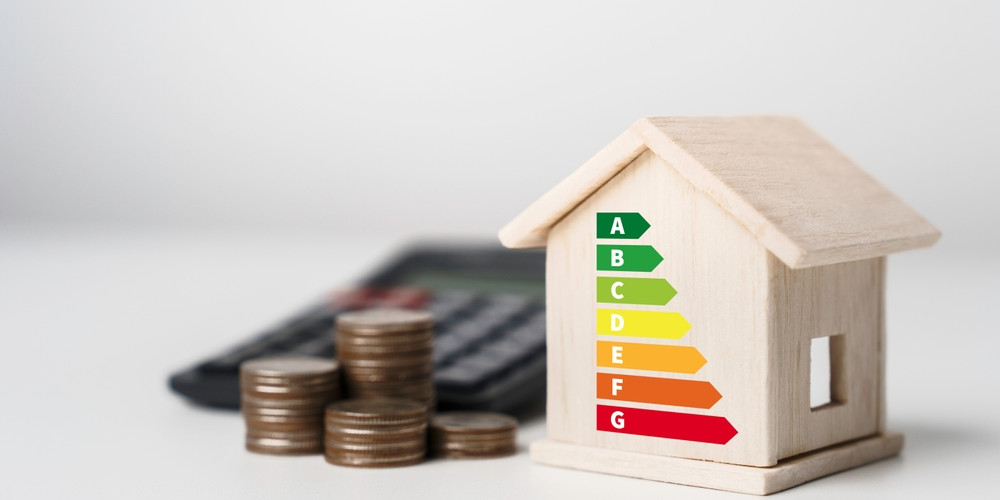Understanding EPCs: Your Complete Guide to Energy Performance Certificates
8th July 2024

If you’re a homeowner, buyer, or seller in the UK, understanding the ins and outs of Energy Performance Certificates (EPCs) is crucial. An EPC provides detailed information on the energy efficiency of a property, and it’s a legal requirement when selling or renting out a property. In this blog, we’ll explore what EPCs are, why they matter, and how you can navigate the process of obtaining and improving them.
What is an EPC?
An EPC, or Energy Performance Certificate, is a detailed document that evaluates the energy efficiency of a property. Issued after an assessment by a qualified assessor, the EPC rates a property on a scale from A (most efficient) to G (least efficient), providing a quantitative measure of how energy-efficient the property is in terms of its construction, heating methods, and insulation. It includes specific information about the property's energy use, typical energy costs, and carbon dioxide emissions, which are crucial for homeowners, potential buyers, or tenants because it gives insight into the expected energy demands and costs associated with the property.
Furthermore, the EPC comes with recommendations on how to improve the property’s energy efficiency. These suggestions range from simple measures like adding draught-proofing to more significant recommendations such as upgrading the heating system or installing renewable energy technologies like solar panels. Each recommendation includes the estimated cost, the typical savings per year, and the effect on the EPC rating if implemented.
The EPC also plays a vital role in property transactions and rental markets. It is legally required when selling or renting a property in the UK, providing transparency about the property's energy efficiency to potential buyers and tenants. Moreover, properties with better energy ratings can often command higher prices and are more attractive in the market, highlighting the importance of a good EPC rating.
Frequently Asked Questions about EPCs
What does EPC stand for?
EPC stands for Energy Performance Certificate.
How much does it cost to get an EPC?
The cost of obtaining an EPC can vary depending on the size and location of the property, but typically it ranges from £65 to £120.
How long does an EPC last?
An EPC is valid for 10 years from the date it is issued.
What does EPC mean on a house?
On a house, the EPC rating indicates how energy-efficient the property is, which can affect its value and the interest of potential buyers or tenants.
How can I get an EPC certificate?
To obtain an EPC certificate, you need to hire a qualified assessor who will visit your property and perform an assessment.
How to improve an EPC rating from E to C?
Improving your home’s EPC rating can involve various upgrades such as enhancing insulation, upgrading the heating system, and installing double-glazing windows.
Should I worry about my EPC rating?
A good EPC rating can make your property more attractive to buyers and renters, potentially increasing its value, so it is worth considering.
How long does an EPC assessment take?
The assessment typically takes about 45 minutes to an hour, depending on the size and complexity of the property.
Can an electrician do an EPC?
No, an EPC must be done by a qualified EPC assessor, not an electrician.
Can I do an EPC on my own house?
While you cannot issue an EPC yourself unless you are a certified assessor, you can certainly make improvements to better the EPC rating of your house.
Exploring Retrofitting
What does it mean to retrofit a system?
To retrofit a system means to add new technology or features to older systems.
What is another word for retrofit?
Another word for retrofit is "modernise" or "upgrade."
What is retrofit in the UK?
In the UK, retrofitting refers to the addition of new features or technology to existing buildings to make them more energy efficient.
What is an example of retrofitting?
An example of retrofitting could be installing insulation in an older home to improve its heat retention.
Whether you are selling your home, renting it out, or just interested in improving its energy efficiency, getting to grips with your property’s EPC is beneficial. Not only does it provide essential information on your home’s energy performance, but it also offers actionable advice on how to enhance this performance, ultimately saving money and boosting your home’s value in the competitive market.

